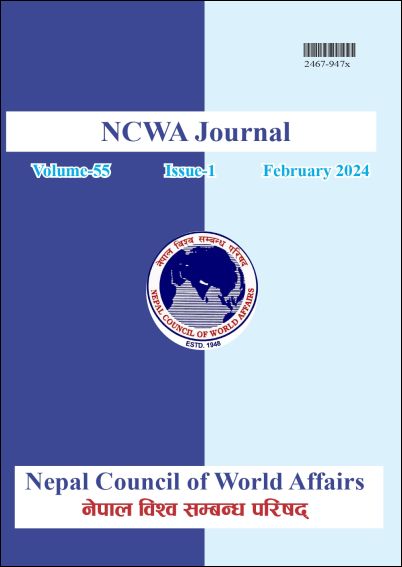Nuclear Aspects of the Russia-Ukraine War and its Implications for Nepal
DOI:
https://doi.org/10.3126/ncwaj.v55i01.62977Keywords:
Russia-Ukraine war, nuclear war, nuclear winter, Nepali mercenaries, peaceAbstract
Nearly two years old Russia-Ukraine war seems to go on for a long period. The United States and European Union are supporting Ukraine’s offensive to regain their lost land. The Russian threat to use nuclear bombs at the outset has taken the world by great surprise. The use of a megaton nuclear bomb could lead to unimagined catastrophe killing a billion people, and a nuclear winter could set in leading to a worldwide famine that could kill millions more. The nuclear watchdog of the United Nations - the International Atomic Energy Agency, is keeping track of Europe’s largest nuclear power plant in Ukraine. Nuclear-related international treaties are fast becoming ineffective and World War III could be possible. This war is, however, coming to a stalemate. Peace initiatives taken are ineffective so far. This war must end soon and nuclear weapons should remain as deterrence and should not and never be used to save mankind.




